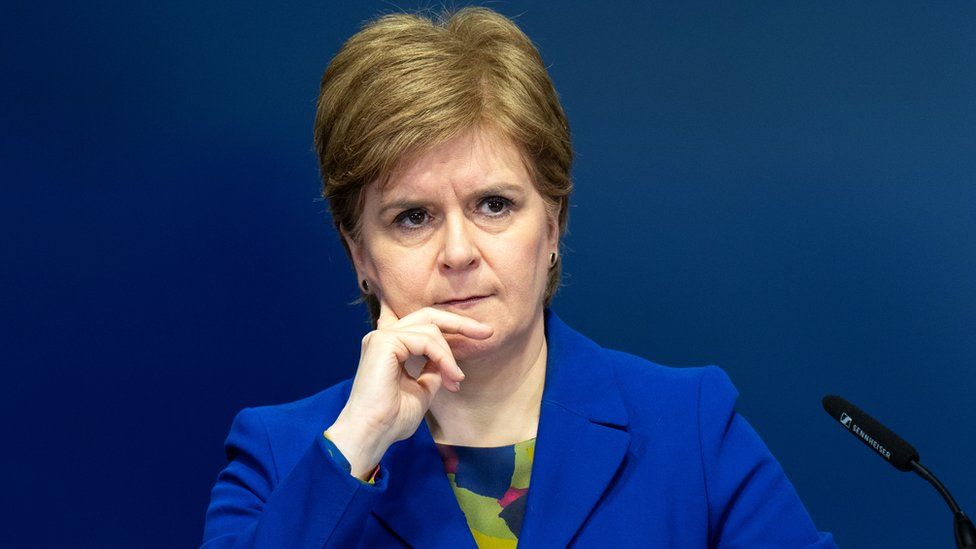A very quick guide to Nicola Sturgeon's resignation
- Published

Nicola Sturgeon, the leader of Scotland's government and a champion of her country's independence movement, says she's stepping down. If you're not up to speed or don't follow politics, here's what you need to know about her.
She says she's stepping down for personal reasons
"I'm not expecting violins here, but I am a human being as well as a politician," she said at a big press conference. "These jobs are a privilege, but they are also rightly hard." She said it had nothing to do with her current political woes, but the brutality of modern politics "takes its toll" on politicians and those around them.
It's been a tough few months for the Scottish leader
Recently, she's been pushing for reform of gender recognition laws - but that's proved controversial. She's also been embroiled in several high-profile rows, such as whether a rapist should go to a men's or women's prison, and uncertainty about the campaign for Scottish independence from the UK - one of the things she's been best known for.
Scotland is part of the UK but has its own national government
Ms Sturgeon is the longest-serving First Minister (or leader of the Scottish government). She took over the Scottish National Party (the main pro-independence party) after Scotland voted against independence in 2014 - and has been in charge ever since.
Her approval ratings have dropped
The gender recognition row, along with mounting political problems like healthcare and rising prices, have hit her popularity hard. Polling expert Prof Sir John Curtice from Strathclyde University told the BBC she is "far and away the most popular leader" in Scotland, though her popularity is as low as it has been while she's had the job.
It's unclear what her resignation means for independence
Ms Sturgeon wanted to hold another vote this year, but the UK Supreme Court said Scotland couldn't do this without the permission of the UK government, which it wasn't going to give. Still determined, she said the SNP would treat the next general election - where the UK chooses who runs the country - as if it is a vote about independence. But there's no sign Westminster would accept that argument.
She used to be a lawyer
Ms Sturgeon has a law degree and worked as a solicitor. But she has been member of the SNP since she was just 16 - and became a member of the Scottish parliament 13 years later. She says she'll stay in politics even if she's stepping down from the top job.
And no-one knows who will replace her
Ms Sturgeon's announcement came as a surprise to many on a Wednesday morning - and there's no clear successor lined up. So she's said she'll remain in office until a replacement is elected by her party.